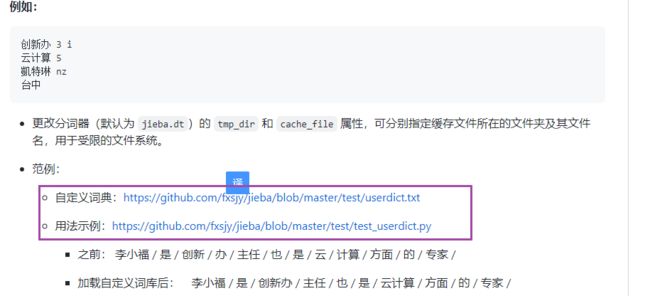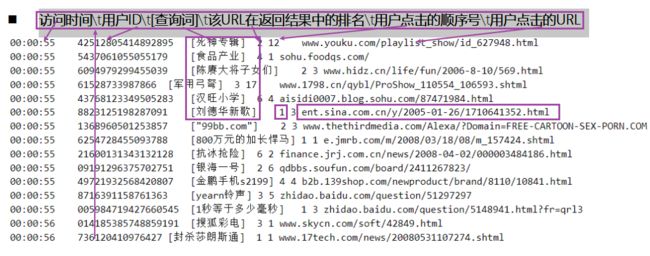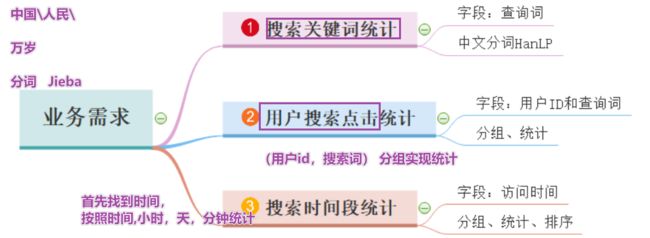士兵过河2025B卷目录点击查看:华为OD机试2025B卷真题题库目录|机考题库+算法考点详解华为OD2025B卷200分题型题目描述一支N个士兵的军队正在趁夜色逃亡,途中遇到一条湍急的大河。敌军在T的时长后到达河面,没到过对岸的士兵都会被消灭。现在军队只找到了1只小船,这船最多能同时坐上2个士兵。当1个士兵划船过河,用时为a[i];0<=i
【无标题】Python ---Day2 复合类型之序列类型、映射类型和集合类型的学习!!!
系列文章目录文章目录系列文章目录前言一、复合类型初识1.1列表类型1.1.1列表创建1.1.2列表运算1.1.3列表访问1.1.3.1索引1.1.3.2反向索引1.1.3.3切片1.1.4列表操作1.1.4.1添加数据1.1.4.2修改数据1.1.4.3删除数据1.2元组类型1.2.1元组创建1.2.2元组操作1.2.2.2查看元组1.2.2.3解包技能1.2.3元组运算1.2.4元组不可变二、映
Python数据分析案例|从模拟数据到可视化:零售门店客流量差异分析全流程
1.依赖库导入importmatplotlib.pyplotaspltimportnumpyasnpimportpandasaspdfrommatplotlibimportfont_managerfromdatetimeimportdatetimematplotlib.pyplot:用于绘制图表。numpy:numpy:pandas:虽然代码中未font_manager:设置datetime:生成
【机器学习-08】参数调优宝典:网格搜索与贝叶斯搜索等攻略
云天徽上
机器学习机器学习人工智能
博主简介:曾任某智慧城市类企业算法总监,目前在美国市场的物流公司从事高级算法工程师一职,深耕人工智能领域,精通python数据挖掘、可视化、机器学习等,发表过AI相关的专利并多次在AI类比赛中获奖。CSDN人工智能领域的优质创作者,提供AI相关的技术咨询、项目开发和个性化解决方案等服务,如有需要请站内私信或者联系任意文章底部的的VX名片(ID:xf982831907)博主粉丝群介绍:①群内初中生、
Python中字符串的操作方法
幻鸩605
pythonjava开发语言
字符串拼接使用+运算符将多个字符串连接起来。例如:s1="Hello"s2="World"result=s1+""+s2print(result)#输出:HelloWorld字符串重复使用*运算符重复字符串。例如:s="abc"result=s*3print(result)#输出:abcabcabc字符串长度使用len()函数获取字符串长度。例如:s="Python"length=len(s)pr
【2025B卷专题】华为OD机试2025B卷统一考试题库清单,时间紧张就刷这个(Python/JS/C/C++)
哪 吒
搬砖工逆袭Java架构师华为odpythonjavascript华为OD机试2025B卷
专栏导读本专栏收录于《华为OD机试真题(Python/JS/C/C++)》。刷的越多,抽中的概率越大,私信哪吒,备注华为OD,加入华为OD刷题交流群,每一题都有详细的答题思路、详细的代码注释、3个测试用例、为什么这道题采用XX算法、XX算法的适用场景,发现新题目,随时更新。2025年5月12日,华为官方已经将华为OD机试(A卷)切换为B卷。目前正在考的是B卷,按照华为OD往常的操作,B卷题目是由往
PyTorch 在 Python 自然语言处理中的运用
Python编程之道
Python编程之道pythonpytorch自然语言处理ai
PyTorch在Python自然语言处理中的运用关键词:PyTorch,Python,自然语言处理,深度学习,文本分类,情感分析摘要:本文全面探讨了PyTorch在Python自然语言处理(NLP)领域的运用。首先介绍了相关背景知识,包括目的范围、预期读者等内容。接着详细阐述了核心概念,如词嵌入、循环神经网络等,并给出了相应的原理示意图和流程图。深入讲解了核心算法原理,结合Python代码进行详细
后端领域的自然语言处理技术应用
大厂资深架构师
SpringBoot开发实战自然语言处理easyui人工智能ai
后端领域的自然语言处理技术应用关键词:后端领域、自然语言处理、技术应用、算法原理、实际案例摘要:本文聚焦于后端领域中自然语言处理技术的应用。首先介绍了相关背景,包括目的范围、预期读者等。接着阐述核心概念与联系,通过文本示意图和Mermaid流程图展示其原理和架构。详细讲解了核心算法原理并给出Python源代码示例,同时介绍了数学模型和公式。通过项目实战,展示代码实际案例并进行详细解释。分析了自然语
【图像处理基石】如何检测到画面中的ppt并对其进行增强?
1.入门版ppt检测增强工具我们介绍一个使用Python进行PPT检测并校正画面的实现方案。这个方案主要利用OpenCV进行图像处理,通过边缘检测和透视变换技术来识别并校正PPT画面。importcv2importnumpyasnpfromPILimportImageimportmatplotlib.pyplotaspltclassPPTDetector:def__init__(self):#初始
Python中什么时候需要返回值,什么时候不需要返回值???
似乎很简单
Python学习日记python开发语言
在Python中,函数是否需要返回值取决于它的设计目的和功能需求。需要返回值的情况计算结果需要被后续代码使用当函数的主要目的是计算或生成数据,且调用方需要这些结果时:defadd(a,b):returna+b#结果需要被其他代码使用total=add(3,5)#需要返回值需要传递状态或信息如果函数执行后需要告诉调用方是否成功、返回状态码或错误信息:defvalidate_input(input):
Python中的高阶函数---便捷的语法书写!!!!,可以简化一些函数的书写!!!
似乎很简单
Python学习日记python开发语言学习笔记
目录1.map()函数示例1:单可迭代对象(平方运算)示例2:多可迭代对象(元素相加)2.mapvs列表推导式什么是列表推导式(ListComprehension)?对比示例列表推导式的优势map的优势5.实际应用场景场景1:批量转换数据类型场景2:多列数据处理场景3:链式操作6.性能与注意事项总结3.sorted()函数1.语法:sorted(iterable,*,key=None,revers
Seaborn高阶玩法全解析:从复杂图表到多图布局的可视化实战指南
数据可视化就像给数据“画肖像”——初级阶段是勾勒轮廓,高级阶段则是赋予灵魂。在Python可视化生态中,Seaborn凭借“一行代码出美图”的优雅,成为数据分析的“画笔利器”。但你是否遇到过这样的场景:想同时展示数据分布与统计量,却被基础图表限制;想批量绘制分面图,手动拼接效率低下;想让图表更具设计感,却对颜色搭配和注解技巧一知半解?本文将带你解锁Seaborn的高阶玩法,从复杂图表绘制到多图布局
scanpy保存图片的常用方法汇总
Bio Coder
空间转录组&单细胞scanpy保存图片汇总
在使用Scanpy(一个用于单细胞RNA测序数据分析的Python库)时,保存图片(如可视化结果)是常见的操作。Scanpy的绘图功能主要基于Matplotlib和Seaborn,保存图片的方法也与这些库的保存机制一致。以下是Scanpy保存图片的详细方法及注意事项:1.基本保存图片的方法Scanpy的绘图函数(如sc.pl.umap、sc.pl.tsne、sc.pl.pca等)通常会返回Matp
MCP Streamable HTTP 样例(qbit)
pythonagent
前言模型上下文协议(ModelContextProtocol,MCP),是由Anthropic推出的开源协议,旨在实现大语言模型与外部数据源和工具的集成,用来在大模型和数据源之间建立安全双向的连接。本文代码技术栈Python3.11.8FastMCP2.10.3MCP的传输机制StandardInput/Output(stdio)StreamableHTTPServer-SentEvents(SS
掌握变量命名与Python继承机制
掌握变量命名与Python继承机制背景简介在编程中,变量命名和继承是基础且重要的概念。良好的命名习惯可以提升代码的可读性,而继承则是一种代码复用的重要机制。本文将结合具体的书籍章节内容,深入解析变量命名规则和Python继承机制。变量命名规则变量命名是编程中最基础的部分,而正确的命名习惯能够帮助其他开发者(或未来的自己)更好地理解代码。根据书籍提供的内容,我们应当遵守以下规则:变量名只包含数字、下
从零开始:构建支持上下文窗口的AI原生应用实战指南
AI天才研究院
AI人工智能与大数据AI-nativeai
从零开始:构建支持上下文窗口的AI原生应用实战指南关键词:大语言模型(LLM)、上下文窗口、AI原生应用、token管理、对话状态保持、向量检索、记忆压缩摘要:本文从AI原生应用的核心需求出发,系统讲解支持上下文窗口的应用构建全流程。通过解析上下文窗口的技术本质、关键挑战及解决方案,结合Python代码实战和真实场景案例,帮助开发者掌握从需求分析到落地部署的完整方法。内容涵盖上下文窗口管理策略、t
python进程线程协程区别_Python:线程、进程与协程(1)——概念
weixin_39989159
python进程线程协程区别
最近的业余时间主要放在了学习Python线程、进程和协程里,第一次用python的多线程和多进程是在两个月前,当时只是简单的看了几篇博文然后就跟着用,没有仔细去研究,第一次用的感觉它们其实挺简单的,最近这段时间通过看书,看Python中文官方文档等等相关资料,发现并没有想想中的那么简单,很多知识点需要仔细去理解,Python线程、进程和协程应该是Python的高级用法。Python的高级用法有很多
全栈运维的“诅咒”与“荣光”:为什么“万金油”工程师是项目成功的隐藏MVP?
云原生水神
职业发展系统运维运维
大家好,今天,我们来聊一个特殊且至关重要的群体:运维工程师。特别是那些在项目制中,以一己之力扛起一个或多个产品生死的“全能战士”。你是否就是其中一员?你的技能树上点亮了:操作系统、网络协议、mysql与Redis中间件、Docker与K8s容器化、Ansible与Terraform自动化、Go/Python工具开发、Prometheus监控体系、opentelemetry可视化,甚至要负责信息安全
Python Selenium 使用指南
Selenium是一个用于自动化Web浏览器交互的强大工具,常用于网页测试、数据抓取和自动化任务。以下是Python中Selenium的详细使用说明。安装Selenium首先需要安装Selenium库和浏览器驱动:pipinstallselenium然后下载对应浏览器的驱动:Chrome:ChromeDriverFirefox:GeckoDriverEdge:EdgeDriver将驱动放在系统PA
【Python进阶】Python网络协议与套接字编程:构建客户端和服务器
1、网络通信基础与网络协议1.1网络通信模型概述网络通信是信息时代基石,它如同现实世界中的邮递系统,将数据从一处传递到另一处。其中,OSI七层模型与TCP/IP四层或五层模型是理解和构建网络通信的基础。1.1.1OSI七层模型与TCP/IP四层/五层模型OSI(开放系统互连)参考模型提出了七层结构,从物理层到应用层,每一层都有其特定的功能和职责,例如物理层关注的是信号如何在介质上传输,而应用层则处
设计模式介绍
tntxia
设计模式
设计模式来源于土木工程师 克里斯托弗 亚历山大(http://en.wikipedia.org/wiki/Christopher_Alexander)的早期作品。他经常发表一些作品,内容是总结他在解决设计问题方面的经验,以及这些知识与城市和建筑模式之间有何关联。有一天,亚历山大突然发现,重复使用这些模式可以让某些设计构造取得我们期望的最佳效果。
亚历山大与萨拉-石川佳纯和穆雷 西乐弗斯坦合作
android高级组件使用(一)
百合不是茶
androidRatingBarSpinner
1、自动完成文本框(AutoCompleteTextView)
AutoCompleteTextView从EditText派生出来,实际上也是一个文本编辑框,但它比普通编辑框多一个功能:当用户输入一个字符后,自动完成文本框会显示一个下拉菜单,供用户从中选择,当用户选择某个菜单项之后,AutoCompleteTextView按用户选择自动填写该文本框。
使用AutoCompleteTex
[网络与通讯]路由器市场大有潜力可挖掘
comsci
网络
如果国内的电子厂商和计算机设备厂商觉得手机市场已经有点饱和了,那么可以考虑一下交换机和路由器市场的进入问题.....
这方面的技术和知识,目前处在一个开放型的状态,有利于各类小型电子企业进入
&nbs
自写简单Redis内存统计shell
商人shang
Linux shell统计Redis内存
#!/bin/bash
address="192.168.150.128:6666,192.168.150.128:6666"
hosts=(${address//,/ })
sfile="staticts.log"
for hostitem in ${hosts[@]}
do
ipport=(${hostitem
单例模式(饿汉 vs懒汉)
oloz
单例模式
package 单例模式;
/*
* 应用场景:保证在整个应用之中某个对象的实例只有一个
* 单例模式种的《 懒汉模式》
* */
public class Singleton {
//01 将构造方法私有化,外界就无法用new Singleton()的方式获得实例
private Singleton(){};
//02 申明类得唯一实例
priva
springMvc json支持
杨白白
json springmvc
1.Spring mvc处理json需要使用jackson的类库,因此需要先引入jackson包
2在spring mvc中解析输入为json格式的数据:使用@RequestBody来设置输入
@RequestMapping("helloJson")
public @ResponseBody
JsonTest helloJson() {
android播放,掃描添加本地音頻文件
小桔子
最近幾乎沒有什麽事情,繼續鼓搗我的小東西。想在項目中加入一個簡易的音樂播放器功能,就像華為p6桌面上那麼大小的音樂播放器。用過天天動聽或者QQ音樂播放器的人都知道,可已通過本地掃描添加歌曲。不知道他們是怎麼實現的,我覺得應該掃描設備上的所有文件,過濾出音頻文件,每個文件實例化為一個實體,記錄文件名、路徑、歌手、類型、大小等信息。具體算法思想,
oracle常用命令
aichenglong
oracledba常用命令
1 创建临时表空间
create temporary tablespace user_temp
tempfile 'D:\oracle\oradata\Oracle9i\user_temp.dbf'
size 50m
autoextend on
next 50m maxsize 20480m
extent management local
25个Eclipse插件
AILIKES
eclipse插件
提高代码质量的插件1. FindBugsFindBugs可以帮你找到Java代码中的bug,它使用Lesser GNU Public License的自由软件许可。2. CheckstyleCheckstyle插件可以集成到Eclipse IDE中去,能确保Java代码遵循标准代码样式。3. ECLemmaECLemma是一款拥有Eclipse Public License许可的免费工具,它提供了
Spring MVC拦截器+注解方式实现防止表单重复提交
baalwolf
spring mvc
原理:在新建页面中Session保存token随机码,当保存时验证,通过后删除,当再次点击保存时由于服务器端的Session中已经不存在了,所有无法验证通过。
1.新建注解:
? 1 2 3 4 5 6 7 8 9 10 11 12 13 14 15 16 17 18
《Javascript高级程序设计(第3版)》闭包理解
bijian1013
JavaScript
“闭包是指有权访问另一个函数作用域中的变量的函数。”--《Javascript高级程序设计(第3版)》
看以下代码:
<script type="text/javascript">
function outer() {
var i = 10;
return f
AngularJS Module类的方法
bijian1013
JavaScriptAngularJSModule
AngularJS中的Module类负责定义应用如何启动,它还可以通过声明的方式定义应用中的各个片段。我们来看看它是如何实现这些功能的。
一.Main方法在哪里
如果你是从Java或者Python编程语言转过来的,那么你可能很想知道AngularJS里面的main方法在哪里?这个把所
[Maven学习笔记七]Maven插件和目标
bit1129
maven插件
插件(plugin)和目标(goal)
Maven,就其本质而言,是一个插件执行框架,Maven的每个目标的执行逻辑都是由插件来完成的,一个插件可以有1个或者几个目标,比如maven-compiler-plugin插件包含compile和testCompile,即maven-compiler-plugin提供了源代码编译和测试源代码编译的两个目标
使用插件和目标使得我们可以干预
【Hadoop八】Yarn的资源调度策略
bit1129
hadoop
1. Hadoop的三种调度策略
Hadoop提供了3中作业调用的策略,
FIFO Scheduler
Fair Scheduler
Capacity Scheduler
以上三种调度算法,在Hadoop MR1中就引入了,在Yarn中对它们进行了改进和完善.Fair和Capacity Scheduler用于多用户共享的资源调度
2. 多用户资源共享的调度
Nginx使用Linux内存加速静态文件访问
ronin47
Nginx是一个非常出色的静态资源web服务器。如果你嫌它还不够快,可以把放在磁盘中的文件,映射到内存中,减少高并发下的磁盘IO。
先做几个假设。nginx.conf中所配置站点的路径是/home/wwwroot/res,站点所对应文件原始存储路径:/opt/web/res
shell脚本非常简单,思路就是拷贝资源文件到内存中,然后在把网站的静态文件链接指向到内存中即可。具体如下:
关于Unity3D中的Shader的知识
brotherlamp
unityunity资料unity教程unity视频unity自学
首先先解释下Unity3D的Shader,Unity里面的Shaders是使用一种叫ShaderLab的语言编写的,它同微软的FX文件或者NVIDIA的CgFX有些类似。传统意义上的vertex shader和pixel shader还是使用标准的Cg/HLSL 编程语言编写的。因此Unity文档里面的Shader,都是指用ShaderLab编写的代码,然后我们来看下Unity3D自带的60多个S
CopyOnWriteArrayList vs ArrayList
bylijinnan
java
package com.ljn.base;
import java.util.ArrayList;
import java.util.Iterator;
import java.util.List;
import java.util.concurrent.CopyOnWriteArrayList;
/**
* 总述:
* 1.ArrayListi不是线程安全的,CopyO
内存中栈和堆的区别
chicony
内存
1、内存分配方面:
堆:一般由程序员分配释放, 若程序员不释放,程序结束时可能由OS回收 。注意它与数据结构中的堆是两回事,分配方式是类似于链表。可能用到的关键字如下:new、malloc、delete、free等等。
栈:由编译器(Compiler)自动分配释放,存放函数的参数值,局部变量的值等。其操作方式类似于数据结构中
回答一位网友对Scala的提问
chenchao051
scalamap
本来准备在私信里直接回复了,但是发现不太方便,就简要回答在这里。 问题 写道 对于scala的简洁十分佩服,但又觉得比较晦涩,例如一例,Map("a" -> List(11,111)).flatMap(_._2),可否说下最后那个函数做了什么,真正在开发的时候也会如此简洁?谢谢
先回答一点,在实际使用中,Scala毫无疑问就是这么简单。
mysql 取每组前几条记录
daizj
mysql分组最大值最小值每组三条记录
一、对分组的记录取前N条记录:例如:取每组的前3条最大的记录 1.用子查询: SELECT * FROM tableName a WHERE 3> (SELECT COUNT(*) FROM tableName b WHERE b.id=a.id AND b.cnt>a. cnt) ORDER BY a.id,a.account DE
HTTP深入浅出 http请求
dcj3sjt126com
http
HTTP(HyperText Transfer Protocol)是一套计算机通过网络进行通信的规则。计算机专家设计出HTTP,使HTTP客户(如Web浏览器)能够从HTTP服务器(Web服务器)请求信息和服务,HTTP目前协议的版本是1.1.HTTP是一种无状态的协议,无状态是指Web浏览器和Web服务器之间不需要建立持久的连接,这意味着当一个客户端向服务器端发出请求,然后We
判断MySQL记录是否存在方法比较
dcj3sjt126com
mysql
把数据写入到数据库的时,常常会碰到先要检测要插入的记录是否存在,然后决定是否要写入。
我这里总结了判断记录是否存在的常用方法:
sql语句: select count ( * ) from tablename;
然后读取count(*)的值判断记录是否存在。对于这种方法性能上有些浪费,我们只是想判断记录记录是否存在,没有必要全部都查出来。
对HTML XML的一点认识
e200702084
htmlxml
感谢http://www.w3school.com.cn提供的资料
HTML 文档中的每个成分都是一个节点。
节点
根据 DOM,HTML 文档中的每个成分都是一个节点。
DOM 是这样规定的:
整个文档是一个文档节点
每个 HTML 标签是一个元素节点
包含在 HTML 元素中的文本是文本节点
每一个 HTML 属性是一个属性节点
注释属于注释节点
Node 层次
jquery分页插件
genaiwei
jqueryWeb前端分页插件
//jquery页码控件// 创建一个闭包 (function($) { // 插件的定义 $.fn.pageTool = function(options) { var totalPa
Mybatis与Ibatis对照入门于学习
Josh_Persistence
mybatisibatis区别联系
一、为什么使用IBatis/Mybatis
对于从事 Java EE 的开发人员来说,iBatis 是一个再熟悉不过的持久层框架了,在 Hibernate、JPA 这样的一站式对象 / 关系映射(O/R Mapping)解决方案盛行之前,iBaits 基本是持久层框架的不二选择。即使在持久层框架层出不穷的今天,iBatis 凭借着易学易用、
C中怎样合理决定使用那种整数类型?
秋风扫落叶
c数据类型
如果需要大数值(大于32767或小于32767), 使用long 型。 否则, 如果空间很重要 (如有大数组或很多结构), 使用 short 型。 除此之外, 就使用 int 型。 如果严格定义的溢出特征很重要而负值无关紧要, 或者你希望在操作二进制位和字节时避免符号扩展的问题, 请使用对应的无符号类型。 但是, 要注意在表达式中混用有符号和无符号值的情况。
&nbs
maven问题
zhb8015
maven问题
问题1:
Eclipse 中 新建maven项目 无法添加src/main/java 问题
eclipse创建maevn web项目,在选择maven_archetype_web原型后,默认只有src/main/resources这个Source Floder。
按照maven目录结构,添加src/main/ja
(二)androidpn-server tomcat版源码解析之--push消息处理
spjich
javaandrodipn推送
在 (一)androidpn-server tomcat版源码解析之--项目启动这篇中,已经描述了整个推送服务器的启动过程,并且把握到了消息的入口即XmppIoHandler这个类,今天我将继续往下分析下面的核心代码,主要分为3大块,链接创建,消息的发送,链接关闭。
先贴一段XmppIoHandler的部分代码
/**
* Invoked from an I/O proc
用js中的formData类型解决ajax提交表单时文件不能被serialize方法序列化的问题
中华好儿孙
JavaScriptAjaxWeb上传文件FormData
var formData = new FormData($("#inputFileForm")[0]);
$.ajax({
type:'post',
url:webRoot+"/electronicContractUrl/webapp/uploadfile",
data:formData,
async: false,
ca
mybatis常用jdbcType数据类型
ysj5125094
mybatismapperjdbcType
MyBatis 通过包含的jdbcType
类型
BIT FLOAT CHAR





